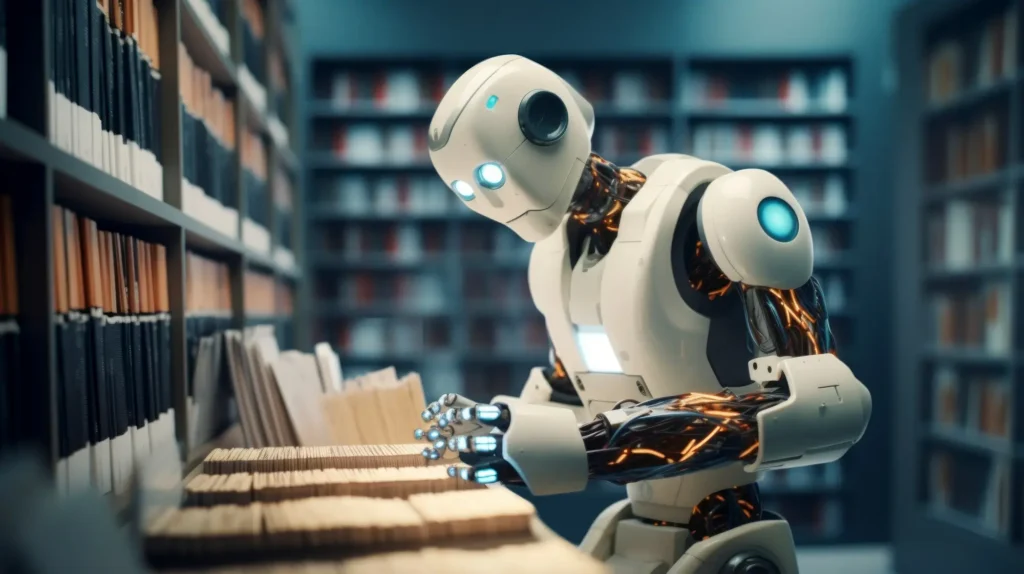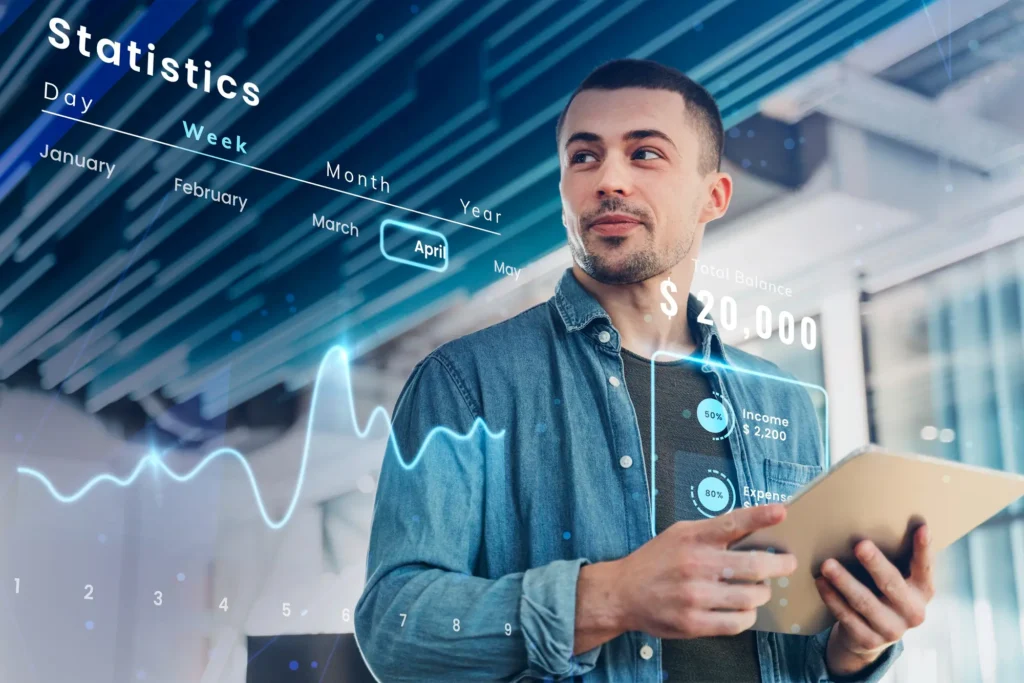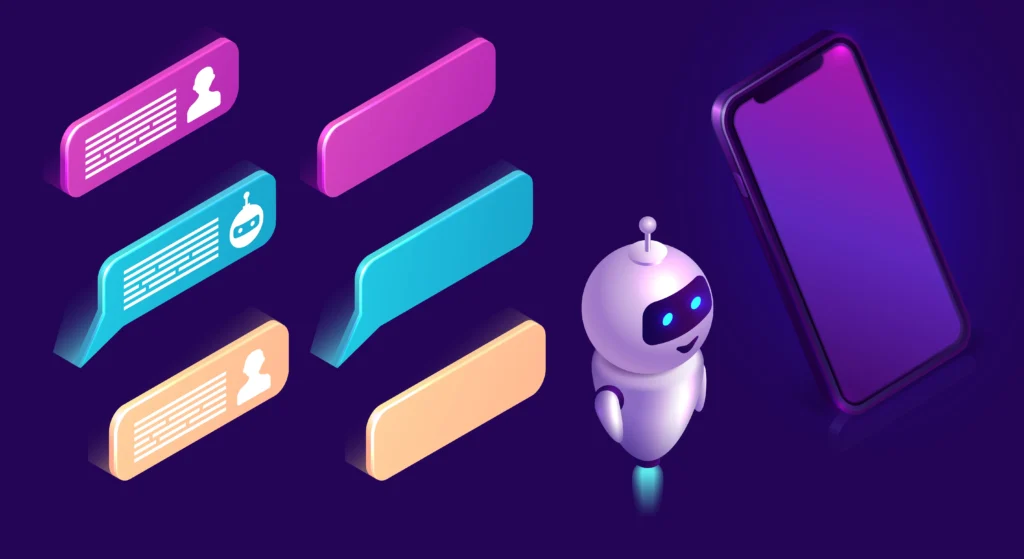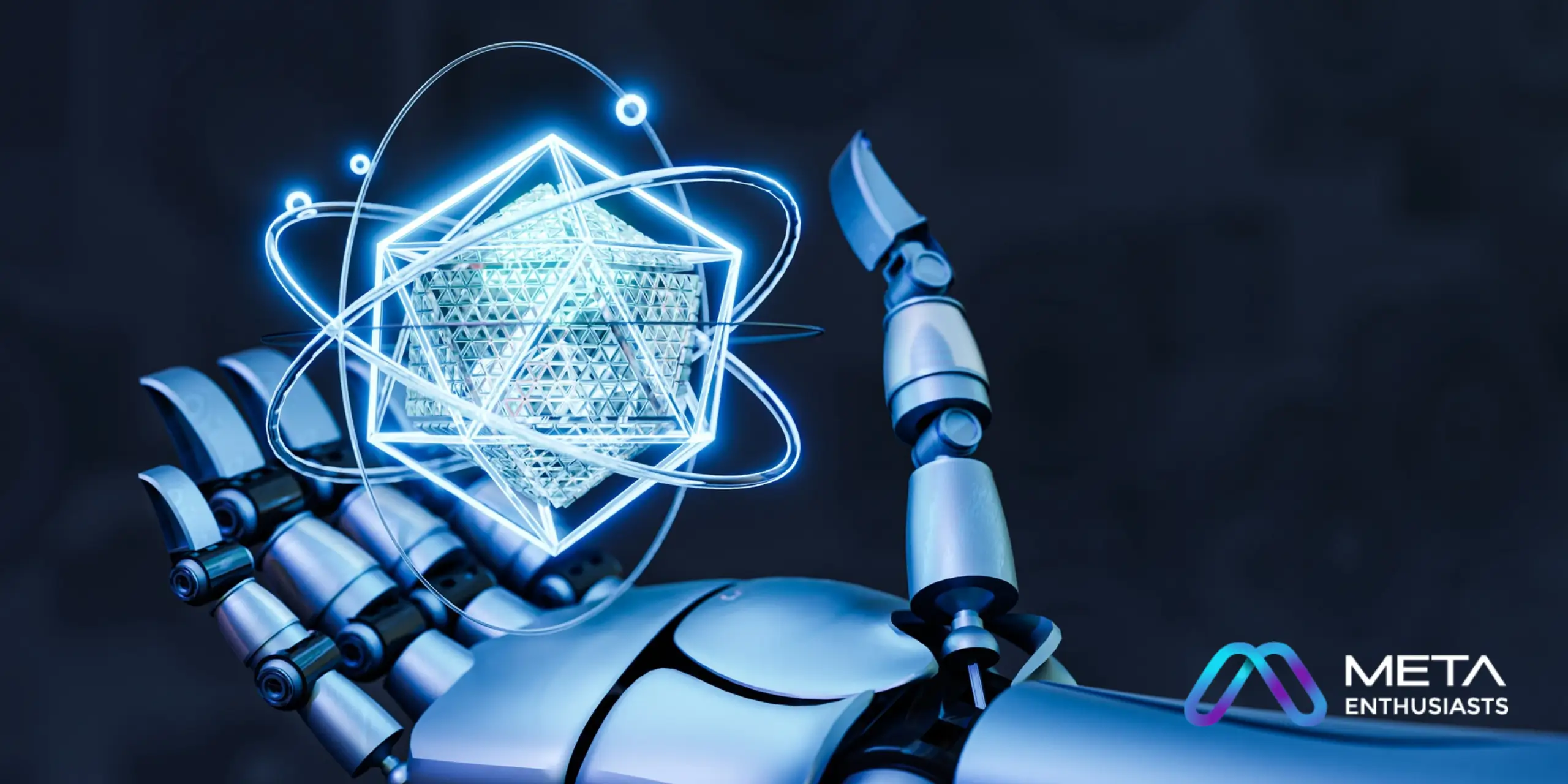Introduction to Artificial Intelligence
What is Artificial Intelligence?
Artificial Intelligence (AI) refers to the simulation of human intelligence in machines that are programmed to think and learn like humans. These intelligent systems can perform tasks that typically require human intelligence, such as recognizing speech, making decisions, and solving problems. AI encompasses a wide range of technologies, including machine learning, natural language processing, and robotics.
Table of Contents
ToggleEvolution and History of AI
The concept of Artificial Intelligence has been around for decades. It all started in the 1950s when computer scientists began exploring the possibility of creating machines that could mimic human intelligence. One of the earliest milestones was the development of the Turing Test by Alan Turing, which was designed to test a machine’s ability to exhibit intelligent behavior equivalent to that of a human.
In the following decades, AI research experienced several ups and downs. The 1980s saw the rise of expert systems, which were designed to mimic the decision-making abilities of human experts. However, it wasn’t until the 21st century that AI began to make significant strides, thanks to advancements in computing power, the availability of large datasets, and the development of sophisticated algorithms. Today, AI is an integral part of our daily lives, powering everything from search engines to personal assistants.
Importance of AI in Modern Society
Artificial Intelligence is revolutionizing many aspects of our lives. It enhances the efficiency of various industries, improves customer experiences, and offers solutions to complex problems. For example, in healthcare, AI assists doctors in diagnosing diseases and recommending treatments. In finance, AI algorithms detect fraudulent activities and help manage investments. Moreover, AI-powered technologies like self-driving cars and smart home devices are making our lives more convenient and safer.
AI is also playing a crucial role in scientific research, helping scientists analyze vast amounts of data and make groundbreaking discoveries. Additionally, AI is driving innovation in fields like education, agriculture, and environmental conservation, making it a powerful tool for addressing some of the world’s most pressing challenges.
In short, Artificial Intelligence is not just a buzzword; it is a transformative technology that is reshaping our world. As AI continues to evolve, it will undoubtedly bring even more advancements, making our lives better and more efficient.
Also, read – The Ultimate Guide to Artificial Intelligence

Artificial Intelligence in Home Automation
Artificial Intelligence has brought significant advancements to home automation, making our lives more convenient and secure. AI-powered devices are now common in many households, streamlining everyday tasks and enhancing our living environments.
Smart Home Devices
One of the most notable applications of Artificial Intelligence in home automation is the integration of smart home devices. These devices use AI to learn from our habits and preferences, providing personalized experiences.
Voice Assistants (e.g., Amazon Alexa, Google Home)
Voice assistants like Amazon Alexa and Google Home are prime examples of AI in action. These devices can perform a wide range of tasks, from playing music and setting reminders to controlling other smart devices in the home. By using natural language processing, voice assistants understand and respond to our commands, making it easy to manage daily activities with simple voice instructions.
Smart Thermostats
Smart thermostats, such as the Nest Learning Thermostat, use Artificial Intelligence to optimize home heating and cooling. These devices learn our temperature preferences and adjust settings automatically, helping to save energy and reduce utility bills. They can also be controlled remotely via smartphone apps, allowing users to manage their home environment from anywhere.
Automated Lighting Systems
Automated lighting systems utilize AI to enhance home lighting. These systems can adjust the brightness and color of lights based on the time of day, occupancy, and user preferences. For example, lights can dim gradually in the evening to create a relaxing atmosphere or brighten in the morning to help wake you up. AI-driven lighting systems can also improve home security by simulating occupancy when the house is empty.
Home Security Systems
Artificial Intelligence has also revolutionized home security. AI-powered security systems offer advanced features like facial recognition, motion detection, and real-time alerts. These systems can distinguish between regular household activities and potential security threats, providing a higher level of protection.
For instance, AI-enabled security cameras can recognize familiar faces and notify homeowners of any unfamiliar visitors. Some systems can even differentiate between humans, pets, and other moving objects, reducing false alarms. Additionally, AI-driven software can analyze video footage and detect unusual behavior, ensuring prompt responses to potential security issues.

Artificial Intelligence in Personal Health and Fitness
Artificial Intelligence is making significant contributions to personal health and fitness, helping individuals lead healthier lives. AI-powered devices and applications are revolutionizing how we monitor our health, stay fit, and receive medical care.
Wearable Health Devices
Wearable health devices are one of the most popular applications of Artificial Intelligence in personal health and fitness. These devices, such as fitness trackers and smartwatches, collect and analyze data to provide valuable insights into our health and activity levels.
Fitness Trackers (e.g., Fitbit, Apple Watch)
Fitness trackers like Fitbit and Apple Watch use AI to monitor various aspects of our health. These devices can track steps taken, calories burned, heart rate, and even sleep patterns. By analyzing this data, AI algorithms provide personalized recommendations to help users achieve their fitness goals. For instance, if a fitness tracker detects that you are not getting enough sleep, it might suggest ways to improve your sleep habits.
Health Monitoring Apps
Health monitoring apps, often paired with wearable devices, offer a comprehensive view of our well-being. These apps use Artificial Intelligence to analyze health data and provide insights that can lead to better lifestyle choices. For example, an app might track your diet and suggest healthier meal options based on your nutritional needs. Additionally, these apps can alert users to potential health issues, prompting them to seek medical advice when necessary.
AI in Personalized Medicine
Artificial Intelligence is also playing a critical role in personalized medicine. By analyzing large datasets, AI can help identify patterns and make predictions that lead to more tailored treatments for individuals.
AI-powered tools can analyze a person’s genetic information, lifestyle, and medical history to recommend personalized treatment plans. This approach ensures that patients receive the most effective therapies based on their unique profiles. For example, AI can help doctors determine the best medication and dosage for a patient with chronic conditions, minimizing side effects and improving outcomes.
Moreover, AI-driven diagnostic tools are enhancing the accuracy and speed of disease detection. For instance, AI algorithms can analyze medical images, such as X-rays and MRIs, to identify abnormalities that might be missed by the human eye. Early detection of diseases like cancer can significantly improve treatment success rates and patient prognosis.

Artificial Intelligence in Transportation
Artificial Intelligence is revolutionizing the transportation industry, making travel safer, more efficient, and more convenient. AI technologies are being integrated into various aspects of transportation, from autonomous vehicles to traffic management systems.
Autonomous Vehicles
One of the most talked-about applications of Artificial Intelligence in transportation is the development of autonomous vehicles. These self-driving cars use AI to navigate roads, avoid obstacles, and make real-time decisions without human intervention.
AI systems in autonomous vehicles rely on a combination of sensors, cameras, and advanced algorithms to understand and interpret their surroundings. These systems can detect other vehicles, pedestrians, and road signs, enabling the car to respond appropriately. For example, if a pedestrian suddenly crosses the street, the AI can quickly calculate the best course of action to avoid an accident. Companies like Tesla, Waymo, and Uber are leading the charge in developing and testing autonomous vehicles, promising a future where driving is safer and more efficient.
AI in Traffic Management
Artificial Intelligence is also playing a crucial role in improving traffic management. AI-powered systems can analyze traffic patterns, predict congestion, and optimize traffic flow. By using real-time data from various sources, such as traffic cameras and sensors, AI can make adjustments to traffic signals and provide recommendations for alternative routes.
These AI-driven traffic management systems can significantly reduce traffic jams and improve overall transportation efficiency. For example, during rush hours, AI can adjust the timing of traffic lights to minimize wait times at intersections. Additionally, AI can provide real-time updates to drivers through navigation apps, helping them avoid congested areas and reach their destinations faster.
Ride-Sharing Services (e.g., Uber, Lyft)
Ride-sharing services like Uber and Lyft have also embraced Artificial Intelligence to enhance their operations. AI algorithms match passengers with drivers based on proximity, route efficiency, and predicted demand. This ensures that passengers get picked up quickly and that drivers can maximize their earnings.
Moreover, AI is used to predict ride demand in different areas and at different times of the day. This allows ride-sharing companies to position drivers strategically, reducing wait times for passengers. AI also helps in dynamic pricing, where fares are adjusted based on current demand and supply, ensuring a balanced and efficient system.

Artificial Intelligence in Education
Artificial Intelligence is making significant strides in the field of education, transforming how students learn and how educators teach. AI-powered tools and applications are creating personalized learning experiences, improving administrative efficiency, and enhancing the overall educational process.
Personalized Learning Systems
One of the most impactful applications of Artificial Intelligence in education is personalized learning systems. These systems use AI to tailor educational content to the individual needs and learning styles of students. By analyzing data on a student’s performance, AI can identify strengths and weaknesses, and then adjust the curriculum accordingly.
For instance, if a student is struggling with a particular topic in math, an AI-powered learning platform can provide additional resources, such as tutorials and practice problems, to help the student improve. Conversely, if a student excels in a subject, the system can offer more advanced material to keep them engaged and challenged. This personalized approach ensures that each student receives the support they need to succeed.
AI-Powered Tutoring
AI-powered tutoring systems are another innovative application of Artificial Intelligence in education. These systems provide students with on-demand assistance, helping them with their studies outside of the traditional classroom setting. AI tutors can answer questions, explain concepts, and provide feedback on assignments.
For example, platforms like Khan Academy use AI to offer personalized tutoring in various subjects. These systems can simulate the experience of having a personal tutor, providing instant help whenever a student encounters difficulties. This not only enhances the learning experience but also makes education more accessible, as students can receive help regardless of their location or time constraints.
Administrative Automation in Schools
Artificial Intelligence is also streamlining administrative tasks in educational institutions. AI-powered systems can handle a wide range of administrative functions, from managing student records to scheduling classes and communicating with parents.
For instance, AI can automate the process of grading exams and assignments, saving teachers valuable time and ensuring consistency and fairness. Additionally, AI can help with the admissions process by analyzing applications and recommending the best candidates for acceptance. This reduces the administrative burden on staff and allows them to focus more on teaching and student support.
AI is also enhancing communication within schools. For example, chatbots powered by AI can answer common questions from students and parents, provide updates on school events, and assist with administrative requests. This improves efficiency and ensures that inquiries are addressed promptly.

Artificial Intelligence in Finance
Artificial Intelligence is transforming the finance industry by enhancing efficiency, improving decision-making, and providing better services to customers. AI-powered tools are being used in various aspects of finance, from fraud detection to personal finance management and algorithmic trading.
Fraud Detection Systems
One of the most critical applications of Artificial Intelligence in finance is fraud detection. AI systems can analyze vast amounts of transaction data in real-time to identify suspicious activities and potential fraud. By using machine learning algorithms, these systems learn to recognize patterns and anomalies that may indicate fraudulent behavior.
For example, if an AI system detects an unusual transaction, such as a large purchase made in a different country from the cardholder’s usual location, it can flag the transaction for further investigation. This helps financial institutions respond quickly to potential threats and protect their customers’ accounts.
Personal Finance Management
AI is also revolutionizing personal finance management by offering tools that help individuals manage their money more effectively. AI-powered apps can track spending, create budgets, and provide personalized financial advice. These apps use data from users’ financial transactions to offer insights and recommendations tailored to their financial goals.
For instance, apps like Mint and YNAB (You Need A Budget) use Artificial Intelligence to analyze spending habits and suggest ways to save money. They can also alert users to upcoming bills, track investment portfolios, and provide financial forecasts. This makes managing personal finances easier and more intuitive, empowering individuals to make informed financial decisions.
Algorithmic Trading
Algorithmic trading is another area where Artificial Intelligence is making a significant impact. AI algorithms can analyze market data, identify trends, and execute trades at high speeds and with precision. This allows financial institutions and individual traders to make more informed decisions and capitalize on market opportunities.
For example, AI systems can monitor stock prices and trading volumes to identify patterns that may indicate future price movements. These systems can then execute trades automatically, based on predefined criteria, maximizing profits and minimizing risks. AI-powered trading platforms like QuantConnect and Alpaca are becoming increasingly popular among traders for their ability to process large amounts of data and execute complex trading strategies efficiently.
Risk Management
Artificial Intelligence is also enhancing risk management in finance. AI systems can assess and predict risks by analyzing historical data and identifying potential threats. This helps financial institutions develop strategies to mitigate risks and ensure stability.
For instance, AI can be used to evaluate the creditworthiness of loan applicants by analyzing their financial history and behavior. This provides a more accurate assessment than traditional methods, reducing the likelihood of defaults. Additionally, AI can help manage investment risks by analyzing market trends and predicting potential downturns.

Artificial Intelligence in Customer Service
Artificial Intelligence is revolutionizing customer service by improving response times, enhancing customer experiences, and reducing costs for businesses. AI-powered tools like chatbots and virtual assistants are transforming the way companies interact with their customers, making it easier and more efficient to address inquiries and resolve issues.
Chatbots and Virtual Assistants
One of the most common applications of Artificial Intelligence in customer service is the use of chatbots and virtual assistants. These AI-driven tools can handle a wide range of customer inquiries, from answering frequently asked questions to providing support for more complex issues. Chatbots can be integrated into websites, social media platforms, and messaging apps, allowing customers to access support 24/7.
For example, companies like Facebook and Slack use AI-powered chatbots to assist customers with account management, troubleshooting, and product information. These chatbots can understand natural language, making it easy for customers to interact with them using simple, conversational language. As a result, businesses can provide quick and accurate responses to customer inquiries, improving overall satisfaction.
AI in Customer Relationship Management (CRM)
Artificial Intelligence is also enhancing customer relationship management by providing valuable insights into customer behavior and preferences. AI-powered CRM systems analyze customer data to identify patterns and trends, helping businesses understand their customers better and tailor their offerings accordingly.
For instance, AI can analyze purchase histories, social media interactions, and website visits to predict customer needs and preferences. This allows businesses to deliver personalized marketing campaigns, product recommendations, and promotions, increasing customer engagement and loyalty. AI-driven CRM systems like Salesforce Einstein and Zoho CRM are becoming increasingly popular for their ability to provide actionable insights and improve customer experiences.
Sentiment Analysis Tools
Sentiment analysis is another area where Artificial Intelligence is making a significant impact on customer service. AI-powered sentiment analysis tools can analyze customer feedback, reviews, and social media posts to determine the overall sentiment towards a brand or product. This information helps businesses identify areas for improvement and address customer concerns proactively.
For example, AI can analyze customer reviews on platforms like Yelp and Amazon to identify common issues and trends. By understanding customer sentiment, businesses can make data-driven decisions to improve their products and services, ultimately enhancing customer satisfaction. Sentiment analysis tools like MonkeyLearn and Lexalytics are widely used for their ability to provide real-time insights into customer opinions.
Automating Routine Tasks
AI is also helping automate routine tasks in customer service, freeing up human agents to focus on more complex issues. By handling tasks like data entry, appointment scheduling, and order processing, AI reduces the workload on customer service teams and allows them to provide more personalized support.

Artificial Intelligence in Entertainment and Media
Artificial Intelligence is transforming the entertainment and media industry, enhancing content creation, personalizing user experiences, and revolutionizing how media is consumed. AI-powered tools are being used in various aspects of entertainment, from music and film production to content recommendation systems.
AI in Content Creation
One of the most exciting applications of Artificial Intelligence in entertainment is its role in content creation. AI technologies are being used to generate music, write scripts, and even create visual art. This allows artists and creators to explore new creative possibilities and produce innovative content.
For instance, AI algorithms can analyze existing music tracks to create new compositions that mimic certain styles or genres. Tools like Amper Music and AIVA (Artificial Intelligence Virtual Artist) enable musicians to experiment with different sounds and generate original music with ease. In the film industry, AI can assist in scriptwriting by analyzing successful movies and suggesting plot points or dialogue that resonate with audiences.
Personalized Content Recommendations
Artificial Intelligence plays a significant role in personalizing content recommendations, enhancing the way users discover and consume media. Streaming platforms like Netflix, Spotify, and YouTube use AI algorithms to analyze user preferences and viewing habits, offering tailored recommendations that keep audiences engaged.
These AI systems track what users watch or listen to and then suggest similar content they might enjoy. For example, if a user frequently watches action movies, the AI will recommend other action films or related genres. This personalized approach not only improves user satisfaction but also increases the time spent on the platform, benefiting content providers.
AI in Video Game Development
AI is also revolutionizing the video game industry by enhancing game development and player experiences. AI-driven tools are used to create realistic characters, environments, and scenarios, making games more immersive and engaging.
For instance, AI algorithms can generate dynamic environments that adapt to player actions, providing unique gameplay experiences. Non-player characters (NPCs) in games use AI to exhibit intelligent behavior, reacting to player decisions and adapting to different strategies. This creates more challenging and interactive experiences, keeping players engaged and entertained.
Automated Content Moderation
Artificial Intelligence is improving content moderation in media platforms, ensuring a safer and more enjoyable experience for users. AI systems can automatically detect and filter inappropriate or harmful content, such as hate speech or violent imagery, protecting users from exposure to harmful material.
Platforms like Facebook and Instagram use AI to monitor user-generated content, swiftly identifying and removing content that violates community guidelines. This not only enhances user safety but also helps maintain the integrity and reputation of the platform.

Artificial Intelligence in Retail and E-commerce
Artificial Intelligence is transforming the retail and e-commerce industries, enhancing customer experiences, streamlining operations, and boosting sales. AI technologies are being used in various aspects of retail, from personalized shopping experiences to inventory management and predictive analytics.
Personalized Shopping Experiences
One of the most significant applications of Artificial Intelligence in retail is the creation of personalized shopping experiences. AI algorithms analyze customer data, such as browsing history and purchase behavior, to offer tailored recommendations and promotions. This personalization helps retailers engage customers more effectively and increase conversion rates.
For example, e-commerce giants like Amazon and Alibaba use AI to provide product recommendations based on users’ past purchases and preferences. When customers visit these platforms, they are presented with items that match their interests, making the shopping experience more enjoyable and efficient. This level of personalization not only enhances customer satisfaction but also encourages repeat business.
AI-Powered Chatbots in Customer Service
AI-powered chatbots are becoming increasingly popular in retail and e-commerce, providing instant support to customers and improving the shopping experience. These chatbots can answer questions, offer product information, and assist with order tracking, all in real-time.
For instance, retailers like H&M and Sephora use chatbots to interact with customers on their websites and social media platforms. These AI-driven assistants can handle multiple inquiries simultaneously, reducing wait times and ensuring that customers receive prompt and accurate assistance. This improves customer satisfaction and frees up human agents to focus on more complex issues.
Inventory Management and Demand Forecasting
Artificial Intelligence is also revolutionizing inventory management and demand forecasting in retail. AI systems can analyze sales data, market trends, and other variables to predict demand for products, helping retailers optimize their inventory levels and reduce waste.
For example, AI-powered tools can forecast which products are likely to be popular during specific seasons or events. Retailers can then adjust their inventory accordingly, ensuring they have enough stock to meet customer demand without overstocking. This reduces carrying costs and improves overall efficiency.
Visual Search and Augmented Reality
AI technologies like visual search and augmented reality are enhancing the shopping experience by making it more interactive and intuitive. Visual search allows customers to search for products using images instead of text, making it easier to find items that match their preferences.
For instance, platforms like Pinterest and Google Lens use AI to enable users to upload photos and receive product recommendations based on those images. This feature is particularly useful for fashion and home decor, where customers may want to find items that match a particular style or color scheme.
Augmented reality (AR) is also being used to provide virtual try-ons and product visualization. Retailers like IKEA and Warby Parker offer AR apps that allow customers to see how furniture would look in their homes or how glasses would fit on their faces before making a purchase. This enhances the shopping experience and reduces the likelihood of returns.

Artificial Intelligence in Environmental Sustainability
Artificial Intelligence is playing a crucial role in promoting environmental sustainability, offering innovative solutions to some of the world’s most pressing ecological challenges. From optimizing energy consumption to monitoring wildlife and reducing waste, AI technologies are helping to create a more sustainable future.
Optimizing Energy Consumption
Artificial Intelligence is transforming how we manage and optimize energy consumption. AI systems can analyze vast amounts of data to identify patterns and inefficiencies in energy usage, helping to reduce waste and lower carbon emissions.
For example, AI can optimize the operation of smart grids, which distribute electricity more efficiently and adjust supply based on real-time demand. This helps prevent energy waste and reduces the need for fossil fuel-based power plants. Companies like Google are using AI to optimize the energy efficiency of their data centers, significantly reducing energy consumption and lowering their carbon footprint.
Additionally, AI-powered solutions are being used in homes and businesses to manage heating, cooling, and lighting systems. Smart thermostats and lighting controls use AI to learn user preferences and adjust settings accordingly, saving energy while maintaining comfort.
Monitoring and Protecting Wildlife
AI technologies are also being used to monitor and protect wildlife, providing valuable insights into animal behavior and ecosystems. AI-powered tools can analyze images and audio recordings from remote cameras and sensors, helping researchers track wildlife populations and detect threats.
For instance, AI can identify individual animals in camera footage, monitor their movements, and assess their health. This information is crucial for conservation efforts, as it allows researchers to understand the impact of human activities on wildlife and develop strategies to protect endangered species.
In marine environments, AI is being used to analyze underwater images and detect illegal fishing activities. By monitoring ocean habitats and identifying patterns of overfishing, AI helps authorities enforce regulations and preserve marine biodiversity.
Reducing Waste and Improving Recycling
Artificial Intelligence is also helping to reduce waste and improve recycling processes. AI-powered systems can sort and categorize waste more efficiently, increasing the recovery of recyclable materials and reducing the amount of waste sent to landfills.
For example, AI-driven robots are being used in recycling facilities to sort materials like plastics, metals, and paper. These robots use computer vision and machine learning to identify and separate different types of waste with high accuracy. This not only improves the efficiency of recycling operations but also reduces the contamination of recyclable materials.
Moreover, AI can help optimize supply chains and reduce waste in manufacturing processes. By analyzing production data, AI systems can identify inefficiencies and suggest ways to minimize waste, such as optimizing resource allocation and reducing material consumption.
Climate Change Prediction and Mitigation
Artificial Intelligence is also contributing to climate change prediction and mitigation efforts. AI models can analyze climate data and simulate future scenarios, helping researchers understand the potential impacts of climate change and develop strategies to address them.
For instance, AI can predict the likelihood of extreme weather events, such as hurricanes and floods, allowing governments and communities to prepare and respond more effectively. By providing accurate and timely information, AI helps minimize the damage caused by these events and protect vulnerable populations.
Conclusion
In conclusion, Artificial Intelligence is significantly impacting various aspects of our daily lives, from enhancing personalized experiences in retail and entertainment to advancing environmental sustainability and transforming education. AI technologies are providing innovative solutions that improve efficiency, streamline operations, and offer new possibilities for growth and development.
As AI continues to evolve, its potential to solve complex problems and create positive change is becoming increasingly apparent. Embracing AI in different sectors can lead to smarter, more sustainable solutions that benefit both individuals and society as a whole. The future of Artificial Intelligence holds exciting opportunities, and its ongoing integration into everyday life will undoubtedly shape the way we live, work, and interact with the world around us.


